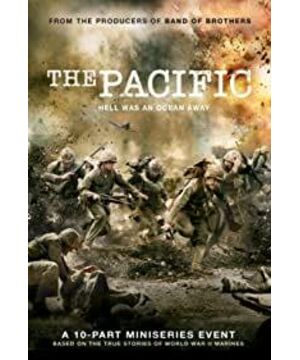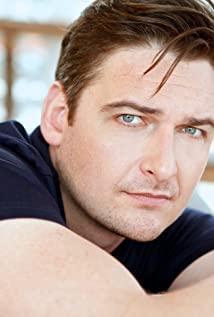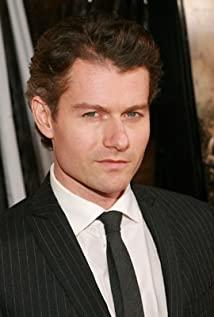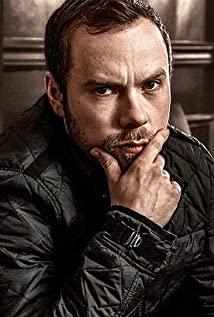The eighth episode of the Pacific Ocean is a very cruel episode. The Battle of Iwo Jima has been shown in a panoramic manner in two Eastwood films. When it comes to "Pacific", the focus is on John personally without hesitation. Through a person's destiny, the ruthless destruction of the individual by war is condensed. When John was shot and fell suddenly, I was shocked. The momentary annihilation in the war was sketched in detail. The slow motion freezes the time and the blood splashed, and interprets the cruel reality with tragic beauty. , The warm emotions performed in the first forty minutes and the sudden fall of John form a huge dramatic contrast, bringing the audience's unspeakable soul division. The camera gradually rises from the sky above the dead John until it disappears in countless broken bodies. In the middle, the previously known hero's light was instantly small and terrifying in the scorched earth of war. Many Chinese audiences sneered at the war scenes of "Pacific" not "Brothers" fiercely, but I think the war pattern and humanistic thinking of "Pacific" is more grand and profound. In fact, we can change the angle of view. First of all, "Pacific" has got rid of the gray image tone of World War II movies since "Saving Private Ryan", and the screen is bright and beautiful, but this does not mean that the description of the war in "Pacific" is implicit. On the contrary, under strong saturation, the blood and violence become more and more naked and naked. Some netizens sarcastically said that this is a psychodrama. This word is a kind of praise. The film really focuses more on psychological depiction than "Brothers". The reduction of the main characters also gives it enough space to enrich the subtext and make Full of characters, typical HBO style, between TV and movies, more refined than TV and more soothing white space than movies. The war scenes in "Pacific" still continue the "Spielberg style", but the shots and techniques are more subjective and bloody (the corpses after the killing are also done too much), and they are more than any previous World War II movies. Freehand. Gua Island and Iwo Jima have been shown from a large angle in the film works, so there is no reason for "Pacific" to be re-carved with a huge narrative mode. The time of 50 minutes is tight, and every minute can not be wasted. It is a unique role. As the center, it radiates the perception of war. Although the perspective is limited, it is very real. Therefore, "Pacific" is an inward-derived film. Only with a large number of details and the struggle of the characters can the audience feel more empathetic and immersive. The sense of substitution. The Battle of Peleliu Island is the focus of the film, because there has never been a film and television work involved before. This forgotten battle was described in three episodes, extending from the beach landing and breaking the airport to the mountains. Because of the combat environment The evil and the brutality of the enemy, the inner mood has undergone a huge change. From not understanding the behavior of comrades in taking gold teeth from the enemy’s corpse and throwing stones into the broken head, to later he became angry and violent, especially on the island of Okinawa. Set, Slaege was not merciful in punishing the enemy, and even hoped that the enemy would not surrender, so that he would have a reason to kill all the Japanese, reflecting the hatred brought about by the war that eroded people like poisoning. It's just the enemy's body, and at the same time it hurts his own heart. In terms of character descriptions, "Pacific" is more concentrated, mainly telling the turbulent fate of the three characters, and the love element occupies a lot of pen and ink, but it is not clichéd, it does not have the pretense and hypocritical ending of "Pearl Harbor" . The love stories of "Pacific" are often torn apart by the factor of war after a moment of passion and romance. For example, an episode in Melbourne, the whole story creates a relaxed atmosphere, wine, women, and sex in the garden. However, the ending moment is sad. The beloved woman cannot bear the pain that the war may bring, so she refuses Lai. Ji, how short and unfortunate is the joy of war. In the episode of Iwo Jima, love becomes a farewell to life and death. Lina stands by the calm coast and stares at the Pacific with tears. In the last second of the screen, John on the other side died in the rain of bullets on Iwo Jima. This is what the show wants to express. The core of, expressing the slaughter and trampling of a generation of young people and all good things in the most tragic Pacific battle in the entire history of World War II. The Pacific Ocean is like the Akron River in hell, separating life and death, symbolizing all the love and pain, cruelty and beauty brought about by this war. This is the reason why "Pacific" is too literary and artistic, because it is not only performing The stories on the front lines of the war are still paying attention to the lives and destinies of ordinary people in the rear who are involved in the war. They are not only exaggerating the cruelty of the war, but also writing the beauty that mankind aspires to in the war. It is not only telling the surface of history. , It is a time when people are deeply resonated in detail. The Battle of the Pacific is like a balance, with the war to extinct humanity and the peace in exchange for sacrifices on both ends. History is swaying and heavy. Seeing the eighth episode, I personally like the third, seventh and eighth episodes. Okinawa is the most looking forward to this episode, because at any rate the Japanese are going to show their hideous faces. The Pacific Ocean is like the Akron River in hell, separating life and death, symbolizing all the love and pain, cruelty and beauty brought about by this war. This is the reason why "Pacific" is too literary and artistic, because it is not only performing The stories on the front lines of the war are still paying attention to the lives and destinies of ordinary people in the rear who are involved in the war. They are not only exaggerating the cruelty of the war, but also writing the beauty that mankind aspires to in the war. It is not only telling the surface of history. , And it is a time when people are deeply resonated in detail. The Battle of the Pacific is like a balance, with the war to extinct humanity and the peace in exchange for sacrifices on both ends. History is swaying and heavy. Seeing the eighth episode, I personally like the third, seventh and eighth episodes. Okinawa is the most looking forward to this episode, because at any rate the Japanese are going to show their hideous faces.
View more about The Pacific reviews











